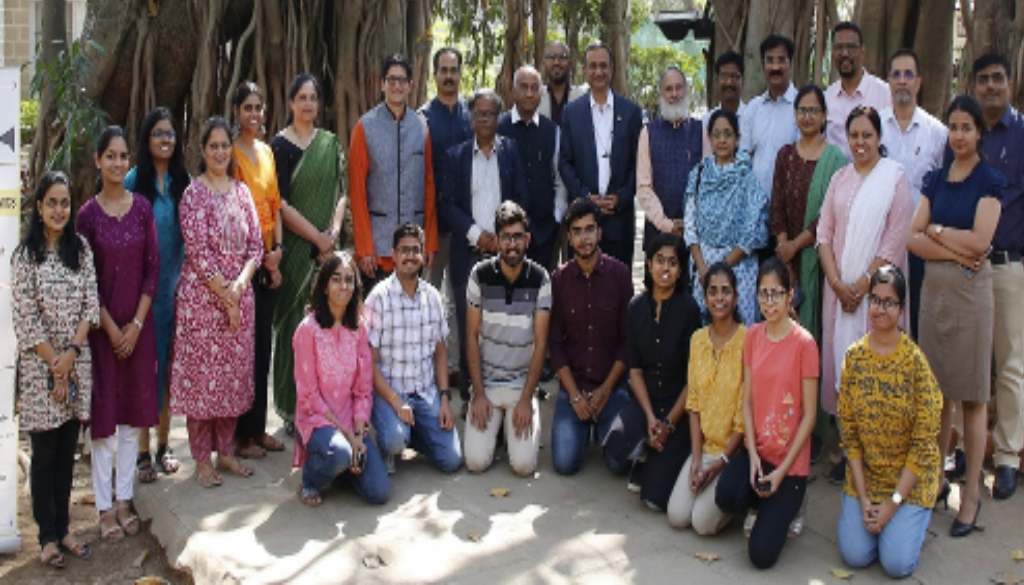Pune: Experts discuss policy interventions, market linkages, and infrastructure improvements for micro and nano food processing enterprises at CEED’s roundtable

Pune, 28th February 2023: A roundtable discussion was hosted by Centre for Excellence in Entrepreneurship and Development (CEED) at Gokhale Institute of Politics and Economics, Pune.
CEED is a policy research and public advocacy centre at the Gokhale Institute of Politics and Economics. It conducts research on policy reforms and public advocacy to improve the entrepreneurial ecosystem in India. It aims to serve as an inclusive forum for academicians, policy makers, market and industry professionals to conduct research and training activities on entrepreneurship. The roundtable conference was a part of one such small effort towards the betterment of the entrepreneurial ecosystem.
The roundtable brought together stakeholders from industry and government to contribute their insights. The sessions focused on experiences of the speakers in the food processing sector related to growth, challenges faced by nano and micro enterprises, the potential solutions in policy to address these challenges and research gaps.
Dr. Lalitagauri Kulkarni, Director of CEED spoke about the necessity to study the growth challenges of nano and micro enterprises. The Assistant Director at CEED, Omkar Sathe, spoke about the context of addressing the crucial need of understanding how to accelerate scaling up of these enterprises in the food processing industry in India.
In his remarks, Mahesh Kambli, Director – Business Development at BAIF Agro, said that the “Micro and nano food processing industry has huge packaging and marketing competition from big players. Some kind of substantial policy intervention needs to be present to help these small players. Furthermore, market linkage is a problem. There is no market linkage present as far as these small organisations are concerned. We need to create an umbrella brand for different clusters, this umbrella brand can ensure standardisation and hygiene of the product. Also, when it comes to micro and nano businesses, policy benefits do not trickle down to the bottom. We need a neutral representation to solve these issues that the food processing industry faces, such as neutral bodies that can send representation to the government regarding these issues.”
Dr. Satyasai Kovvali, Head of Research at NABARD (Rtd), remarked that “The Government needs to report the progress, for monthly and quarterly reviews. There is a duplication and overlap of schemes prevalent. A better information flow needs to be present. In a multi stakeholder environment like this we need to achieve synergies. Information flow can be improved using AI. Some expert systems can be developed wherein we can input ideas and parameters to get some direction. For example, if I want to start making Papad, I should be able to know which schemes and subsidies are available. Due to this one can get this information at a single place, and all ministries can work together to support such entrepreneurs.Duplication and overlap of schemes can also be resolved using this”.
Prof Sangeeta Shroff (Director, Agro-Economic Research Centre, Gokhale Institute of Politics and Economics) commented, “Tapping all kinds of agricultural produce in India can help in a huge economic development. Furthermore, as the Indian economy is labour surplus, employment is an issue that can be solved through the agro-processing sector.”
Dr. Sandip Gaikwad, Assistant Professor at MIT School of Food Technology, said that “Cold storage facilities have increased as compared to the pre-covid era. However, the facilities are product specific. The same cold storage facility may not be useful for other products. So we need to enhance our infrastructure. Also, there are big problems with logistics. Logistics in terms of food plays a particularly vital role and needs to be innovatively improved. For example, we can make green corridors or fast tag labels for such logistic vehicles”.
Joining the roundtable were a host of speakers from different areas of work, Subhash Nagare (Director of Agro Processing & Planning, Commissionerate of Agriculture, Government of Maharashtra), Mr. Mahendra Pawar (AGM, Maharashtra State Agriculture Marketing Board), Dr. Satyasai Kovvali (Head of Research at NABARD (Rtd)), Mahesh Kambli (Director – Business Development, BAIF AGRO and Bio-Technology Pvt. Ltd), Kishore Bhave (Project Director of ATMA, Government of Goa), Atul Mardikar (CEO, Udyogprerana), Sopan Ingale (Food Safety Officer, FDA, Pune), Dr. Sandip Gaikwad (Assistant Professor at MIT School of Food Technology), Shrikrishna Ozarkar (Business Head – Food Neologic Engineers Private Limited) and Prof Sangeeta Shroff.





